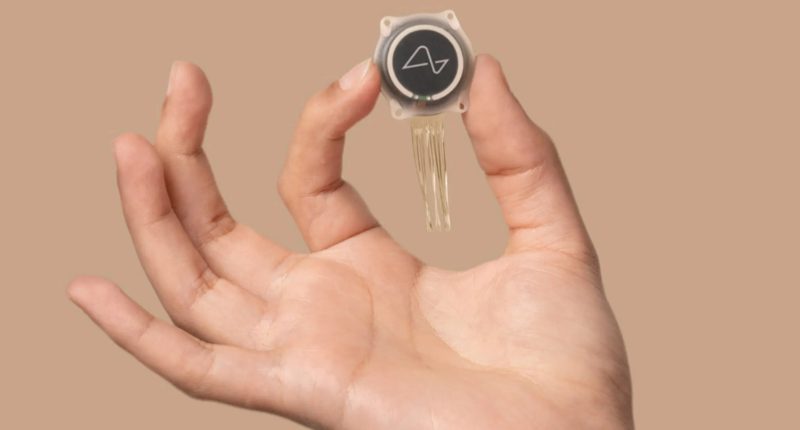AI BRAIN chips will one day be so common we’ll beg for them to be inserted in our children.
That’s according to a cybersecurity expert who thinks the devices will be popular but will come with huge risks.
“One day, the healthcare industry or government will offer some fantastic new capabilities that consumers will beg for and we’ll all beg for them to be implanted into our babies and children,” computer security authority Roger Grimes told The U.S. Sun.
Grimes should know. He’s been in the industry for 35 years, authored over a dozen books on data and computer security, and works as a consultant for major corporations on their cyber defense.
“Maybe they will say it will allow easier tracking if your kid is kidnapped. Or closer monitoring of your child’s health. Whatever the killer service is, one day, most of us will probably beg to have one,” Grimes said.
“And by then, I hope we understand how to best defend against unwanted, malicious manipulation. Because right now, we are terrible at it.”
The data-driven defense evangelist fears that brain chip technology like Elon Musk’s Neuralink could easily become a target for hackers.
It’s well known that current medical devices can be hacked, often with devastating consequences.
“Anything can be hacked; brain chips are no different. And when we have thousands and thousands of them, it’s likely,” Grimes said.
“But I don’t think we have to worry until we get lots of them.”
Most read in News Tech
The expert says that as Musk’s brain chip isn’t yet linked to the internet, as far as we know, the risk of hacking is significantly lowered.
“The chip likely isn’t running a common popular operating system and application,” he added.
“This means that it will be significantly harder for those who don’t have the internal specs to figure out how to hack it, and none of the traditional hacking tools would work against it.
“We are not even sure if the chip is running updatable code, which is required for most hacking.”
Grimes stressed that although it would be very difficult to hack a brain chip right now, it could be possible in the future.
In 2017, around 500,000 pacemakers were recalled by the US Food and Drug Administration (FDA) due to fears they were too easy to hack.
“History has shown that most, if not all, past implantable medical devices and chips are hackable,” Grimes said.
“Why would this one be any different?”
The impact of a hacked AI brain chip is currently unknown.
Grimes is concerned that the health of the user would be negatively impacted.
“Past medical device hacks have shown that hackers were able to maliciously manipulate operations in such a way as to harm the life of the wearer,” he said.
“My biggest worry at this stage of the brain chip, if there was even a hacker motivated enough to try and hack the chip, would be some sort of remote denial-of-service attack or wiping of the chip’s code so that the device would cease to function.”
The possibility of a brain chip being completely wiped is concerning due to Musk’s plans for Neuralink.
Musk went into detail about these brain chip plans during a Q&A session on the Clubhouse app in 2021.
“You could probably save state in the brain. So if you were to die your state could be returned in the form of another human body or a robot body,” he said.
The billionaire compared this saving process to backing up a video game.
If this plan became reality, the risks associated with hacking and wiping a brain chip would be extremely high and could even result in death.
READ MORE SUN STORIES
Grimes doesn’t think this is something we need to worry about right now though, as the technology is just in its infancy.
He reassured The U.S. Sun, “This device is new and its newness and isolation to a solo patient makes it unlikely to be hacked even if someone had the ability.”











